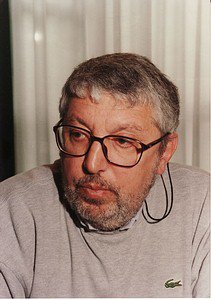Saint Joseph Freinademetz. A Missionary of the Val Badia in China
In the summer of 2008 Pope Benedict XVI travelled to a small village in South Tyrol, Oies, to pay visit to the house of a Saint well know to the Ladin, Austrian, German (and Chinese!) population, but not so much to the Italian one. Born fourth of thirteen children to a farming family, Saint Joseph Freinademetz lived at the end of the XIX century (1852-1908).
Life was difficult to sustain for the family, but was always lived through a simple faith incarnated in the day-to-day reality. A very important moment of the day was the prayer together where the attention was often brought the others: a sick friend, a recent death, the needs of the world. Ujöp, so he was called, loved his family, his country and his mountains, but destiny wanted him away from home at a young age. He decided, not light-hearted, to go study in the seminary, where he had to go by foot, walking for eleven hours, in the episcopal city of Bressanone.
Good student, well-mannered and educated boy, Joseph always accepted the circumstances, even when most difficult, of his life, first of which was learning the German language. In the seminary, the words of some missionaries struck him particularly. Most of all the verse 4:4 of the Book of Lamentations of the prophet Jeremiah: « The young children ask bread, and no man breaketh it unto them ».
To Joseph the meaning of that verse was very clear: the children were the pagans, those who do not know Christ. He then understood that what he learned in his family and enhanced in the seminary, he cannot keep to himself. He felt the urge to bring it to the others and mostly to the most needy and far away. He decided to follow the path of the mission.
Ordain priest, his first role was in the village of Saint Martin, a few kilometres from Oies. His family and friends were extremely happy about it. Joseph was happy too of being back in his beloved valley, he worked gladly in the parish, the people liked him and the children, to whom he taugh to read, write and to understand catechism, loved him particularly. The young priest should be happily satisfied by all of this, but a persistent thought never leaves him: missionary life. When the Society of the Divine Word (SVD), a missionary congregation recently founded by Fr. Arnold Janssen, asked his parish for some priest to help in Stelyl, Netherlands, Joseph answered. In less than a year, he was leaving for China. Before reaching his boat in Ancona, Joseph said his difficult and heartfelt goodbyes to his family and friends in Saint Martin and Oies.
He reached Hong Kong after 35 days of sailing. His first approach to the Chinese world could have gone better. In the land assigned the those first SVD Missionaries in the province of Shandong, lived small groups of Christians, 158 souls in all. Their welcoming was not as kind as expected, as it can be seen in the first letters wrote home, where Fr. Freinademetz describes his first impression on the Chinese people and their habits. The certainty of the value of his mission helped him not to give up. « We must bring witness of Christ to these people, toss His seed, the rest is in His hands ». He chose Saint Paul motto for himself «Greek among the Greeks», so he became «Chinese among the Chinese». He learned quickly to write and speak the language, sharing their life, culture and habits from up-close.
This new attitude changed it all: the Chinese people started knowing Fr. Freinademetz – or better Fu Shenfu, as he decided to call himself – and following him. Tireless in his work and full of compelling kindness, he followed carefully all those converted to the Christian faith. He would prepare a suitable catechism for them and would take care of the training of the new indigenous clergy as of the other missionaries that, little by little, started coming from Europe. In his almost 30 years of mission in China Fu Shenfu’s love for the Chinese people grew vastly as he writes in a letter to his parents: « I love China and its people. I’d be ready to die a thousand times for them. Now that I speak their language and know their tradition, I consider China as my own country, the place where I want to die ».
When the Boxer persecution took its turn on the Christian Missions in China and many missionary priest are killed, Freinademetz didn’t leave his parish and Mission. He faced many aggressions, tortures and the risk of being killed. His sacrifices are not in vain, though. Many gave testimony to the faith of the local Christians, who were ready to give their own life not to repudiate it: in his 29 years of mission, 40,000 were baptised.
Through pictures and, mostly, thanks to many letters Freinademetz wrote during his all life to his family and friends, the exhibition follows the life of the Saint from the beautiful mountains of South Tyrol to the boundless landscapes of Shandong.
« Vi et autorictate nostra apostolica… Joseph Fre…y-na…de…metz… » It wasn’t easy for Pope Paul VI to pronounce the name of Fr. Freinademetz, when on the 19th October 1975 he proclaimed he Blessed. Pope John Paul II declared him Saint on the 5th October 2003.
Curators: Elio Sindoni and Giovanni Zambon











